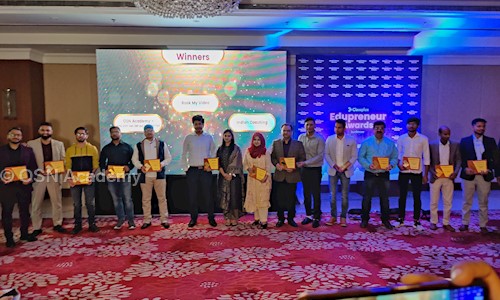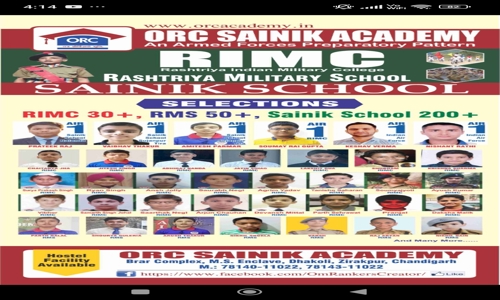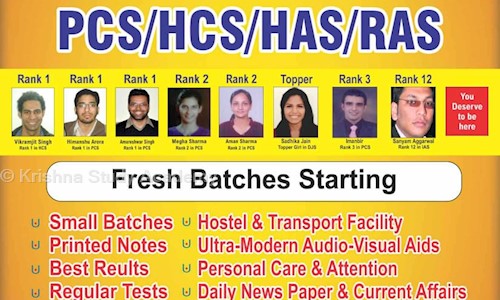About the UPSC exam
IAS Exams, papers/subjects, syllabus, and marks allocation
The Union Public Service Commission (UPSC) is the governing body for the 12 civil services exams held in the country annually, namely the Indian Administrative Service (IAS), Indian Police Service (IPS), Indian Forest Service (IFS), Indian Foreign Service (IFS), IP & TAFS (Indian Post and Telecommunication Accounts and Finance Service), IAAS (Indian Audit and Accounts Service), Indian Revenue Service (IRS), Indian Defence Accounts Service (IDAS), Indian Railway Traffic Service (IRTS), Indian Railway Accounts Service (IRAS), Indian Railway Personnel Service (IRPS), and Indian Trade Service (ITS). And the UPSC office is situated in Dholpur House, Shahjahan Road, Delhi – 110069. The UPSC exams, which are conducted for the recruitment of officers for All India, Central and State services, are among the tough and most prestigious not just in this country, evidenced by the pass percentage of just 0.1%. The aspirants have to prove their proficiency in myriad subjects, including aptitude, languages, current affairs, history, geography, mathematics, technology, environment, ethics, and economic development, among others. And they also have to pass three different kinds of exams to stand a chance of securing an administrative position in the government. And here’s a complete lowdown of the three IAS exams, syllabus covered in each of them, exam pattern and marks distribution, and total papers.
UPSC IAS exams pattern
- IAS prelims
- IAS mains
- IAS interview (personality assessment for public service)
Prelims exam syllabus, subjects, marks & exam duration
Following are all the essential details about the first level of UPSC IAS exams, the prelims: The paper I syllabus comprises the following: ongoing national and international events, Indian history and national movement, physical, social, economic geography, constitution, public policy, political system, economic and social development, environmental ecology, biodiversity, etc. Prelims paper II is designed to assess the following skills in an aspirant: analytical, basic numeracy, comprehension, data interpretation, decision-making, general mental ability, interpersonal skills, logical reasoning, etc.
Prelims exam pattern
- Paper I: Total marks: 200; duration: 2 hours (120 mins); subject: General Studies
- Paper II: T Total marks: 200; duration: 2 hours (120 mins); subject: Aptitude Note: Though you will write the two Preliminary exam papers for 200 marks each, this tally of marks will not count towards your overall UPSC score, which instead will be based on the Mains exam and personality interview.
Mains exam syllabus, subjects, marks & exam duration
In this section of the IAS exam, two papers count as qualifying papers and overall you will be writing seven papers and for 1750 marks (7x250). The following papers will be part of the Mains exam: essay, general studies I, general studies, II, general studies III, general studies IV, and optional papers I and II. For optional paper I, you can choose one from the following 25 elective subjects: agriculture, animal husbandry and veterinary service, anthropology, botany, chemistry, civil engineering, accountancy and commerce, economics, electrical engineering, geography, geology, history, law, management, math, medical science, mechanical engineering, political science and international relations, psychology, public administration, sociology, statistics, and zoology. And for optional paper II, IAS aspirants can choose one of the following 28 literary languages: Assamese, Arabic, Bengali, Bodo, Dogri, French, German, Gujarati, Hindi, Kannada, Kashmiri, Konkani, Maithili, Malayalam, Manipuri, Marathi, Nepali, Oriya, Persian, Punjabi, Russian, Sanskrit, Santhali, Sindhi, Tamil, Telugu, Urdu, and English.
UPSC IAS exam syllabus
List of UPSC optional subjects:
List of UPSC literature optional subjects
UPSC exam course
The IAS exam encompasses 3 stages, namely- preliminary exams, main exams, followed personal interview round. The candidate is tested on various subjects as geography, history, politics, general knowledge, social welfare, science, economics, technology, arts & culture, and more. Considering these aspects, the course is designed meticulously for maximum results.
Job opportunities
An IAS officer can serve under the central or state government for various administrative posts such as the head of departments, district collector, and personal secretary to central ministers, head of public enterprise, and more.
Eligibility criteria to apply for the UPSC exam:
- The candidate must be a citizen of India, subject of Nepal/Bhutan or an Indian origin migrant permanently settled in India
- The candidate must be a graduate in a relevant field from a government recognized university
- The age limit of applying candidates against UPSC IAS Recruitment 2025 should be between 21 years to 32 years and age relaxation will be given to reserved category applicants. The age limit mentioned for various categories is General- 32, OBC-35, SC-37 and PWD-42. Also, the number of attempts defined by the UPSC is as follows:
UPSC IAS interview, personality assessment
An interview panel will assess your suitability to do public service. Some of the traits they will look for are as follows:
- Mental alertness
- Clarity and rationality
- Powers of understanding
- Level and depth of interest
- Intellect and moral integrity
Aspirants can answer the panel of members in the language they know best and the UPSC will arrange for translators. 275 is the marks allocation for personality interview. You will write the IAS exams for a total of 2025 marks, split into 1750 for mains and 275 for the interview.
UPSC Exam Important Dates 2025-26











